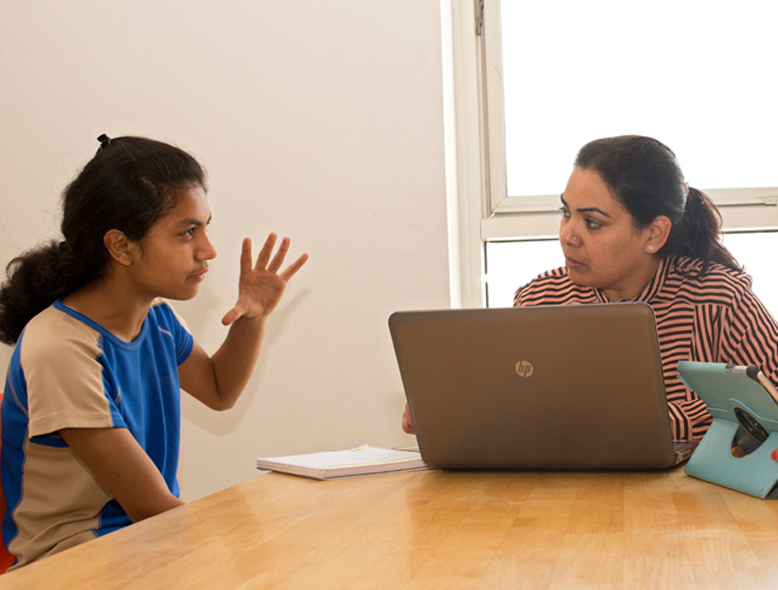Teaching in the KED Program

Ramanjit works at Kunskapsskolan Gurgaon in India, teaching students natural science in Year 4 and social studies in Year 7. The theme course “Our Natural Resources” covers topics in social studies, science and art. Ramanjit teaches the social studies part.
“In this course, you have learned about various groups of people who are still connected to nature more than people like us, who live in towns and cities,” says Ramanjit.
She enjoys discussing subjects with her students.
Conversation is the main method she uses in all her teaching:
“It gives you a nice feeling when you go home, something to reflect on. Discussion is not only good for the students, it is good for the teacher as well,” says Ramanjit.
Compared to a traditional school, the KED Program encourages teachers to take a more flexible approach to teaching. Teachers can individually structure their time and utilize varying learning formats. They teach in open workspaces and benefit from organized collaboration with teachers at other KED schools. With the support of these unique components of the KED Program, teachers have the power to acknowledge that all students learn in different ways and can accommodate the fundamental needs of each student.
In previous jobs, Ramanjit used to work more independently – in her own shell, as she puts it. At Kunskapsskolan Gurgaon, she is a team worker. She gives me an example of a current student who is finding it difficult to speak in English in front of his classmates.
“I talked with my colleagues, explaining the child’s self-esteem was being affected negatively. We discussed various solutions and agreed that if we let the student speak separately, and not in front of everybody, he will start to open up. That’s a specific strategy that I can develop with my colleagues,” says Ramanjit.
Every afternoon after the students leave school, teachers in Kunskapsskolan Gurgaon have an hour when they can sit down and discuss issues like this. Ramanjit does not have to be an expert in every subject studied by her students, but as their personal coach, she is expected to be an expert in learning processes.
Being a teacher in the KED Program centers on three essential functions:
- Conversation
- Flexibility
- Reflection
The model is universal.
The Kunskapsskolan schools are among the leading schools of Sweden. The success of its KED Program can be judged not only by students’ performance being higher than the Swedish national average, but also by the growth of KED schools across international boundaries. Currently, over 100 KED schools and KED Inspired schools are operational across Sweden, UK, the Netherlands, India, USA and the Middle East. The schools follow the curriculum of each country and grade student performance according to national standards.
Kunskapsskolan Education,
Box 11205, SE-100 61 Stockholm, Sweden
Tel +46 8-506 910 00
